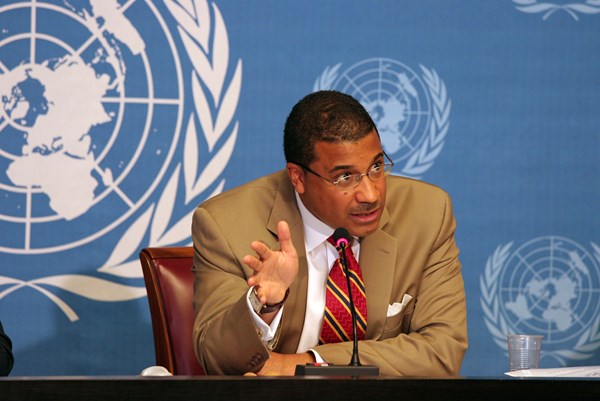US Assistant Secretary of State: Our patience with Russia is not endless
Russia has violated an important agreement with the United States, signed back in the years of the Cold War. That is why Washington, in addition to diplomatic measures, reserves the right to respond with military action as well, said U.S. Assistant Secretary of State for Arms Control, Frank A. Rose.
At the same time, he said that NATO's anti-missile defense system designed to combat threats emanating from beyond the Euro-Atlantic space cannot threaten Russian ballistic missile capacity.
"I can say that Russia has actually created and deployed such systems as the SS-27 "Topol-M" and SS-18 "Satan" ballistic missiles, and our missile defense simply cannot threaten these Russian systems...Russia utilizes different ballistic missile systems, and it will be very difficult for us to cope with them," he said in an interview with Delfi.
Rose also stated that to date there are several challenges associated with Russia. "The good news is that the implementation of a new agreement between Russia and the United States on the reduction of strategic weapons is moving forward so far - bilateral inspections are being conducted, information is being shared, and this allows us to maintain the strategic balance between the two countries. But things are not so good when it comes to Russia’s manageability on the Intermediate-Range Nuclear Forces Treaty (INF). Even in 2014, the U.S.A. stated that Russia did not comply with its obligations not to test-launch land ballistic or cruise missiles with a range of 500 to 5,500 km. It was not easy to admit it publicly, although very influential diplomats called on the Russians to admit to the violations and fulfill their obligations. Unfortunately, the diplomacy was ineffective. This does not mean that we ran out of diplomatic measures. We continue to hold a dialogue with Russia through diplomatic channels and experts, but to no avail," complained the Assistant Secretary of State.
Rose has stressed that the U.S.A.’s priority is "diplomacy, the desire to make Russia comply with their obligations and provide an opportunity to monitor this compliance."
"The INF Treaty is an agreement not only between Russia and the USA - it is the heart of Euro-Atlantic security. I have spent a lot of time working with our allies, trying to give them the latest information about breaches of the treaty by Russia. There is another possible response: though the U.S.A. has not yet decided on the exact measures of this response, Acting Undersecretary of Defense for Policy, Brian P. McKeon, has already mentioned the possibility of military action. We made it clear to Russia that diplomacy is our priority, but we will not allow them to use it against the United States... I just want to say that our patience is not infinite. Whatever we undertake, we will do it only after consultations with the allies."
